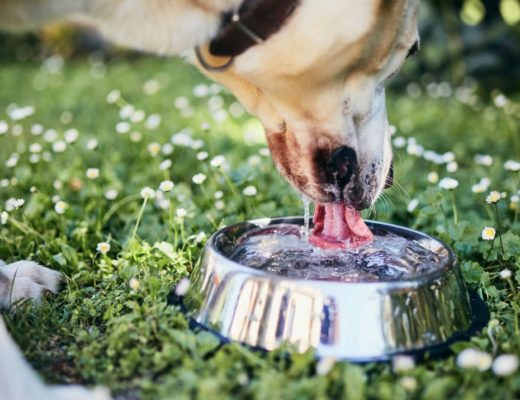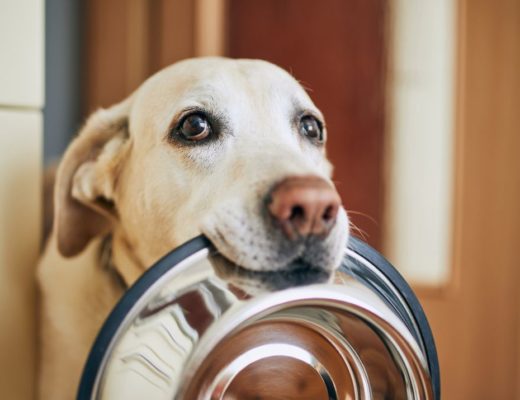Dogs are known to have some pretty peculiar eating habits, and one of the most disgusting is eating feces. If you’re a dog owner, you’ve probably caught your furry friend indulging in this behavior at least once. But why do dogs eat feces? In this blog post, we’ll explore some of the possible reasons behind this behavior.

- Contents:
- Natural Instincts
- Nutritional Deficiencies
- Behavioral Issues
- Mother’s Influence
- Taste
- Conclusion
Natural Instincts
Dogs are scavengers by nature, and in the wild, they would eat anything they can find, including feces. This behavior is instinctual, and some dogs retain this instinct even when they’re domesticated. In the wild, dogs are scavengers that will eat anything they can find, including feces.
This behavior is a natural instinct that allowed them to survive when food was scarce. However, domesticated dogs may also retain this instinct and continue to eat feces even when they have access to plenty of food.
Dogs’ natural scavenger behavior includes eating feces, an instinct that some domesticated dogs still display despite access to food.
Nutritional Deficiencies
Dogs may eat feces to supplement their diet if they are not getting all the nutrients they need from their food. This is more common in dogs that are fed a low-quality or unbalanced diet. Nutritional deficiencies can also be caused by health problems that affect the dog’s ability to absorb or use nutrients.
| ? Comparison Table: | ? Natural Instincts | ?️ Nutritional Deficiencies | ? Behavioral Issues | ?? Mother’s Influence | ? Taste |
|---|---|---|---|---|---|
| Explanation | Instinctual | Dogs may not get all the nutrients from their diet. | Dogs may do this to get attention, to relieve boredom, or because they’re anxious or stressed. | Puppies may learn this behavior from their mother. | Some dogs may eat feces simply because they like the taste. |
| Potential health risks | High risk of parasites and bacterial infections. | High risk of parasites and bacterial infections. | High risk of parasites and bacterial infections. | High risk of parasites and bacterial infections. | High risk of parasites and bacterial infections. |
| Ways to prevent | Pick up feces promptly. | Make sure your dog is getting all the nutrients they need. | Address any underlying behavioral issues. | Clean up after puppies promptly. | Keep your dog away from feces. |
Behavioral Issues
Eating feces can also be a behavioral issue. Some dogs may do this to get attention, to relieve boredom, or because they’re anxious or stressed. In some cases, it can even be a sign of an underlying medical condition.
Feces-eating can be a sign of underlying behavioral issues in dogs. Some dogs may do this to get attention, to relieve boredom, or because they’re anxious or stressed. In some cases, it may be a compulsive behavior that requires professional help to address.
Dogs may eat feces due to behavioral issues like anxiety, boredom, or illness. Compulsive behavior may require professional help.
Mother’s Influence
Puppies may also eat feces because of their mother’s influence. In the wild, mother dogs would eat their puppies’ feces to keep their den clean and prevent predators from finding them. Puppies may learn this behavior from their mother and continue doing it even after they’re weaned.
Puppies may learn to eat feces from their mother if she cleans up after them by eating their feces. This behavior serves a purpose in the wild, where it helps keep the den clean and free of predators. However, it’s not necessary or desirable in domesticated dogs, and it can be a difficult behavior to break.
@8pawsclub Does your dog eat poop?? #8pawsclub #dogpsychology #dogtraining #dogtrainer #dogbehavior #doglover #dogoftheday #dogstagram #training #puppytraining #workingdog #dogschool #positivereinforcement #onlinecourses #workdog
♬ original sound – Dog Behavior & Welfare Trainer
Taste
Believe it or not, some dogs may eat feces simply because they like the taste. This is especially true for dogs that are fed a high-protein diet or those that are fed table scraps. Believe it or not, some dogs may simply enjoy the taste of feces. This is more likely in dogs that are fed a high-protein diet or those that are given table scraps. It’s important to discourage this behavior because it can expose your dog to harmful bacteria and parasites that can make them sick.
Some dogs eat feces due to taste preference, especially high-protein diet or table scraps. However, it poses health risks.
Conclusion
In conclusion, there are several reasons why dogs eat feces, and it’s important to understand the underlying cause to address the behavior. Whether it’s a natural instinct, a nutritional deficiency, a behavioral issue, or a learned behavior, it’s important to keep your dog away from feces to prevent potential health risks. If you’re concerned about your dog’s feces-eating behavior, consult with your veterinarian to rule out any underlying medical conditions.
FAQ
Is it normal for dogs to eat feces?
While it’s not uncommon for dogs to eat feces, it’s not a normal behavior and may be a sign of an underlying issue.
Can eating feces make my dog sick?
Yes, eating feces can expose your dog to parasites and bacteria that can make them sick.
How can I stop my dog from eating feces?
Keeping your dog away from feces is the best way to prevent them from eating it. You can also work with a veterinarian or a dog trainer to address any underlying behavioral issues.
Can puppies learn to eat feces from their mother?
Yes, mother dogs may eat their puppies’ feces to keep their den clean, and puppies may learn this behavior from their mother.
Is there a medical condition that can cause dogs to eat feces?
Yes, some medical conditions, such as malabsorption syndromes or enzyme deficiencies, may cause dogs to eat feces.
Can a nutritional deficiency cause a dog to eat feces?
Yes, dogs that are not getting all the nutrients they need from their diet may resort to eating feces to supplement their diet.
Can changing my dog’s diet help prevent them from eating feces?
Yes, feeding your dog a balanced and nutritious diet can help prevent nutritional deficiencies that may lead to feces eating. However, it may not address other underlying causes of this behavior.




